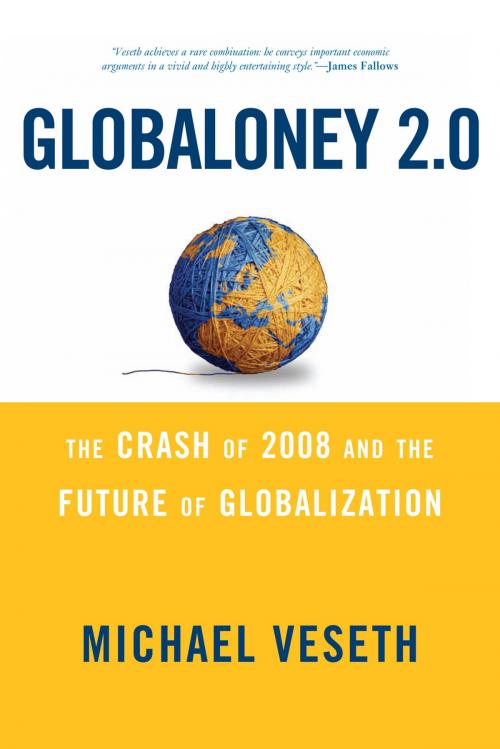Globaloney 2.0
The Crash of 2008 and the Future of Globalization
Nonfiction, Social & Cultural Studies, Political Science| Author: | Michael Veseth | ISBN: | 9780742567474 |
| Publisher: | Rowman & Littlefield Publishers | Publication: | January 16, 2010 |
| Imprint: | Rowman & Littlefield Publishers | Language: | English |
| Author: | Michael Veseth |
| ISBN: | 9780742567474 |
| Publisher: | Rowman & Littlefield Publishers |
| Publication: | January 16, 2010 |
| Imprint: | Rowman & Littlefield Publishers |
| Language: | English |
Globalization is in retreat, but history tells us that this is but a temporary reversal. Globalization will return, but in what form? More cycles of boom and bust? Or can globalization be rebuilt on a more feasible and sustainable platform? These are the compelling questions that Michael Veseth tackles in this thoroughly revised and updated edition of his award-winning book.
Veseth shows how pre-crash visions of globalization were based on three powerful myths: that global finance was a stable foundation for a global economy, that global markets homogenized and Americanized the world, and that globalization itself was irresistible—impossible to shape or oppose at any level from the grassroots on up. The world economic crisis has revealed globalization's Achilles heel: the fundamental instability of global financial markets and the unsettled foundation of economic globalization generally. This realization is a necessary first step, but it alone is not enough. We must rethink the rest of globalization's myths, Veseth persuasively argues, if we want to move beyond boom and bust to a sustainable global future.
Globalization is in retreat, but history tells us that this is but a temporary reversal. Globalization will return, but in what form? More cycles of boom and bust? Or can globalization be rebuilt on a more feasible and sustainable platform? These are the compelling questions that Michael Veseth tackles in this thoroughly revised and updated edition of his award-winning book.
Veseth shows how pre-crash visions of globalization were based on three powerful myths: that global finance was a stable foundation for a global economy, that global markets homogenized and Americanized the world, and that globalization itself was irresistible—impossible to shape or oppose at any level from the grassroots on up. The world economic crisis has revealed globalization's Achilles heel: the fundamental instability of global financial markets and the unsettled foundation of economic globalization generally. This realization is a necessary first step, but it alone is not enough. We must rethink the rest of globalization's myths, Veseth persuasively argues, if we want to move beyond boom and bust to a sustainable global future.















